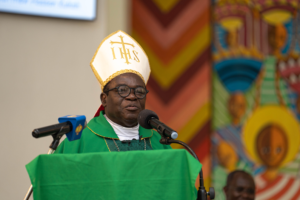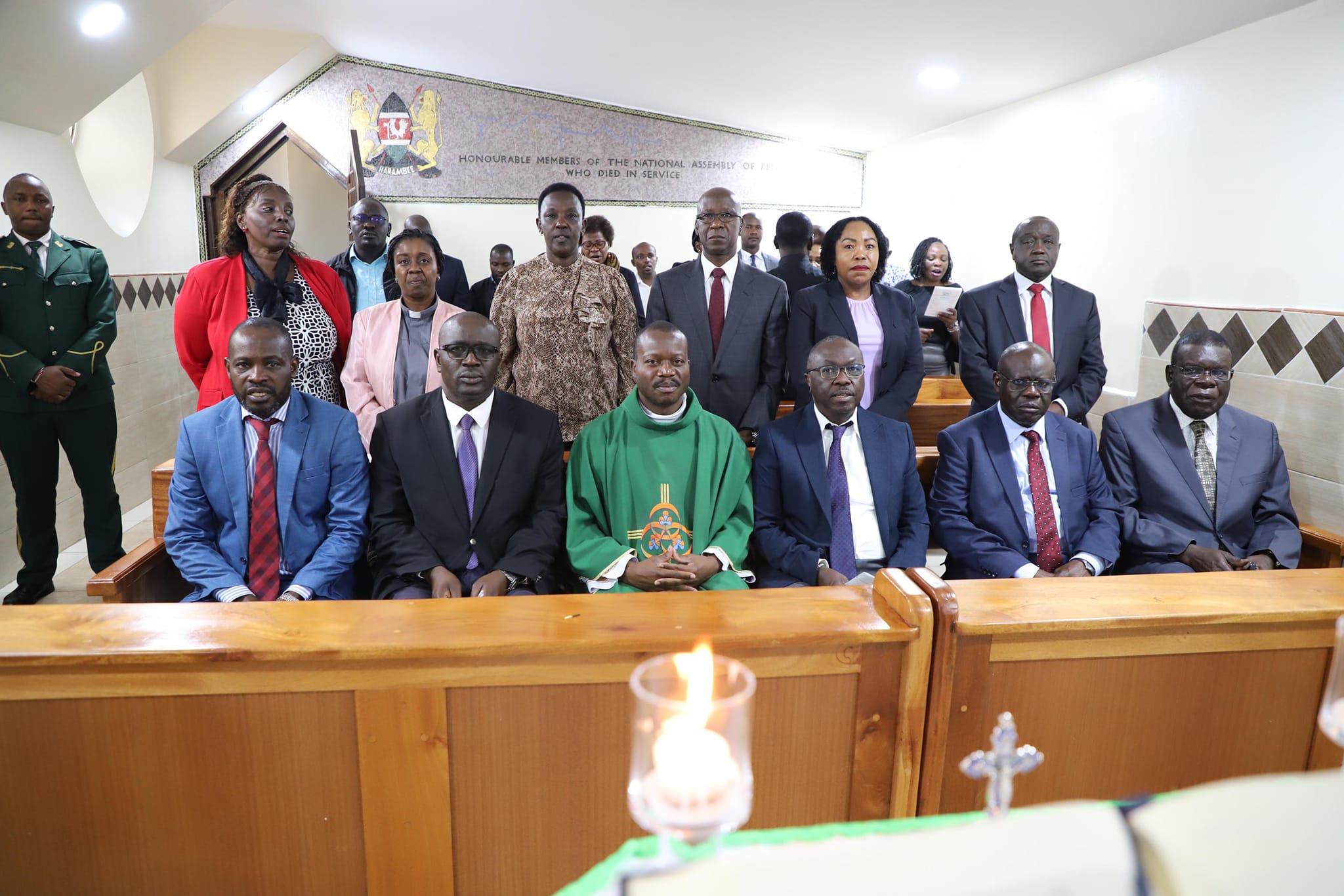By Paschal Norbert
NAIROBI, FEBRUARY 4, 2025 (CISA) – In a world where politics and morality often seem at odds, religious leaders have a crucial role to play in shaping ethical governance. Rt Rev Matthew Hassan Kukah, Bishop of the Catholic Diocese of Sokoto, Nigeria

and a renowned political scientist, peace negotiator, has shed light on the often-overlooked role of parliamentary chaplains, describing it as an apostolate that goes far beyond celebrating Mass or administering sacraments.
“The role of a parliamentary chaplain extends far beyond simply administering the sacraments or celebrating Mass. Often, people assume that being a chaplain is limited to performing religious duties, but in reality, it is a position of great influence and responsibility,” Bishop Kukah stated in an interview with CISA on the sidelines of an illuminating conference titled “The Future of African Theology in a Continent Longing for a New World Order,” hosted by Hekima University College (HUC) on January 29, 2025.
According to the bishop, who has served as a member of Nigeria’s Truth Commission, secretary of the Political Reform Conference, and a member of the country’s Electoral Reform Committee, chaplains hold a privileged position that allows them to engage deeply with political figures. He sees the role not just as a pastoral duty but as an opportunity to shape governance through ethical and moral leadership.
“For instance, a parliamentary chaplain, whether a priest or a religious sister, holds a privileged position, offering an entry point to engage with key political figures. As I mentioned to a fellow priest, this role provides an opportunity to take conversations beyond religious rituals and into deeper, more impactful discussions. It is not just about celebrating Mass; it is about understanding the individuals in parliament, their challenges, and their aspirations,” he explained.
Bishop Kukah emphasized that parliamentary chaplains must go beyond traditional religious functions to foster meaningful engagement with lawmakers. This process, he explained, requires time, effort, and the creation of conducive environments for deeper interactions.
“Creating an environment for such engagement is crucial. Take the Jesuits, for example, what does it take to be one? Is there a specific prayer for Jesuits? Is Ignatian spirituality a secret? Cults have codes that bind them, so why shouldn’t we, as religious leaders, have structured ways to engage and influence? Just as you referenced the Beatitudes, it should be possible to organize weekend retreats or spiritual sessions for members of parliament, which could later extend to the wider Catholic community. Initiatives like these would transcend denominational boundaries, offering opportunities to engage with individuals across different faiths, gender identities, and ideological perspectives. This is a powerful and necessary apostolate,” the bishop stated.
Drawing from global examples, Bishop Kukah highlighted the deliberate role Jesuits have played in shaping leadership, particularly through institutions like Georgetown University in Washington, D.C.
“In Washington, for example, Georgetown University, a Jesuit institution, has played a strategic role in shaping leaders. It is difficult to visit an American embassy anywhere without encountering someone who studied at Georgetown or was taught by Jesuits. This was a deliberate strategy by the Jesuits to position themselves close to centers of power and influence,” observed Bishop Kukah.
He also referenced, Rev Fr Robert F. Drinan, SJ, a Jesuit and former US congressman who was part of Pope John Paul II’s advisory team, demonstrating how religious influence can extend beyond the pulpit into governance.
“This highlights how religious influence can extend into governance. Similarly, Hekima University should aim to be a center of knowledge, not just for Catholics but for all. Catholicism should serve as a springboard for broader engagement because, ultimately, the Church is universal. We are not Catholic because we are a Church; rather, we are a Church because we are Catholic. Our faith calls us to serve all people,” said the Nigerian prelate.
Bishop Kukah argued that a parliamentary chaplain must not be content with simply conducting religious services but should actively participate in shaping political discourse. He called for chaplains to facilitate engagements between bishops and lawmakers and to ensure that parliamentary decisions align with ethical and moral principles.
“Therefore, a parliamentary chaplain should not see their role as merely officiating Mass and returning with a comfortable stipend,” he said, adding “Instead, they should actively engage members of Parliament, facilitate interactions with bishops, and create avenues for lawmakers to become better leaders. Chaplains should help shape discussions before laws are enacted rather than reacting afterward. They can serve as moral compasses, offering guidance not only as religious figures but also as influential voices in governance.”
Beyond immediate political engagements, the bishop also sees the chaplain’s role as instrumental in mentoring young politicians and shaping future leaders who are rooted in strong ethical foundations.
“This role also provides an opportunity to mentor younger generations of politicians who seek direction. By being present and engaged, chaplains can help shape the values and principles that guide those in leadership. This is a noble apostolate, one with the potential to create lasting impact,” he said.
